‘WTAF?’: West Point Alums React to Ku Klux Klan Plaque in Science Building
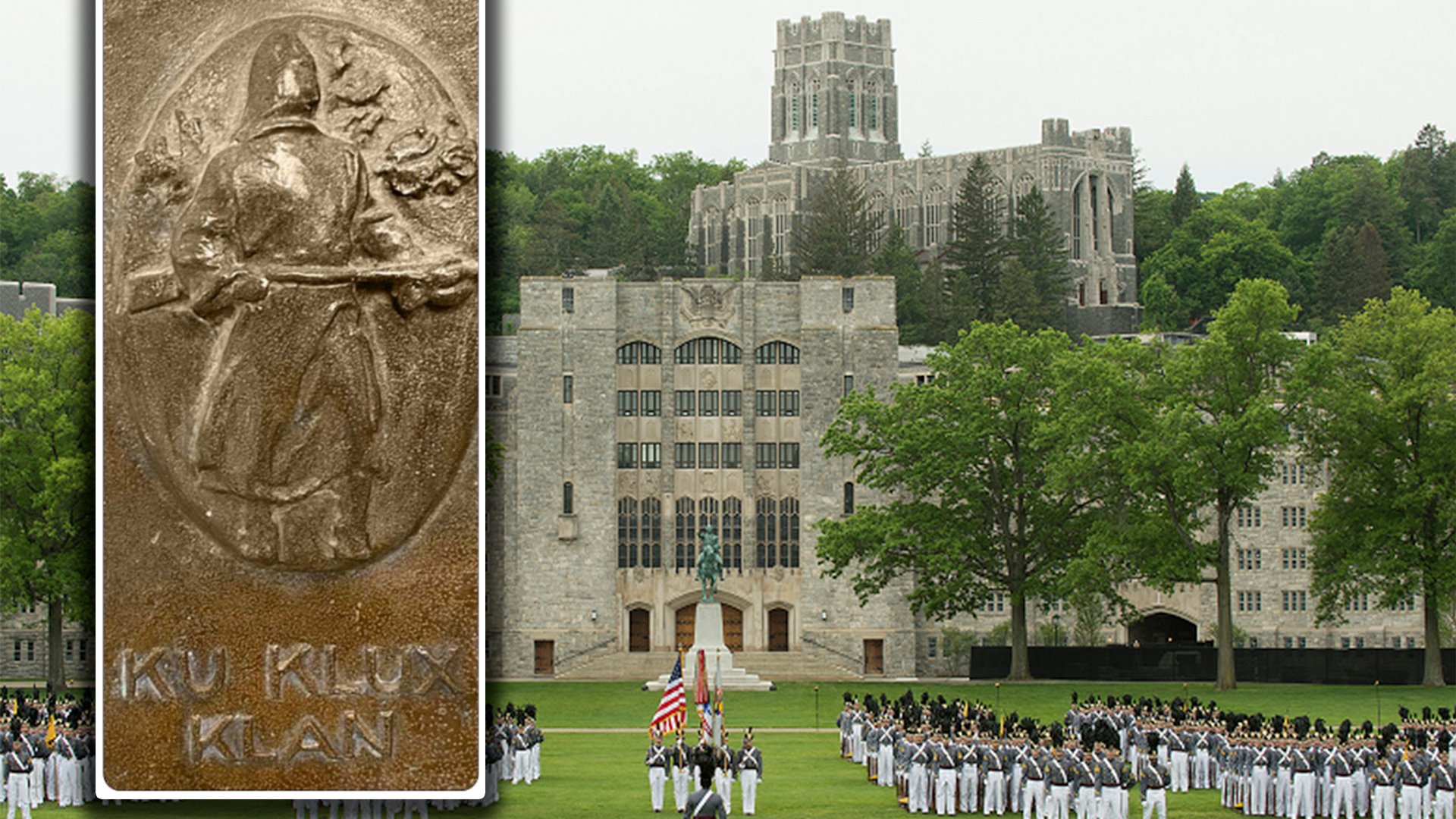
A
A little-known Ku Klux Klan plaque in a West Point science building is among the memorials and names that a Pentagon commission believes should be changed or removed from the nation's two oldest military academies.
A West Point faculty member confirmed to Coffee or Die Magazine that the plaque exists and is visible on campus, but a string of West Point alums contacted by Coffee or Die — ranging from recent graduates to those who left in the 1980s — were baffled to learn of its existence.
"I’ve never seen or heard of this thing," a 2002 graduate told Coffee or Die Magazine. "I’m just having a collective WTAF moment, both on its potential existence and the Commission saying they don’t have domain over it to make a recommendation."
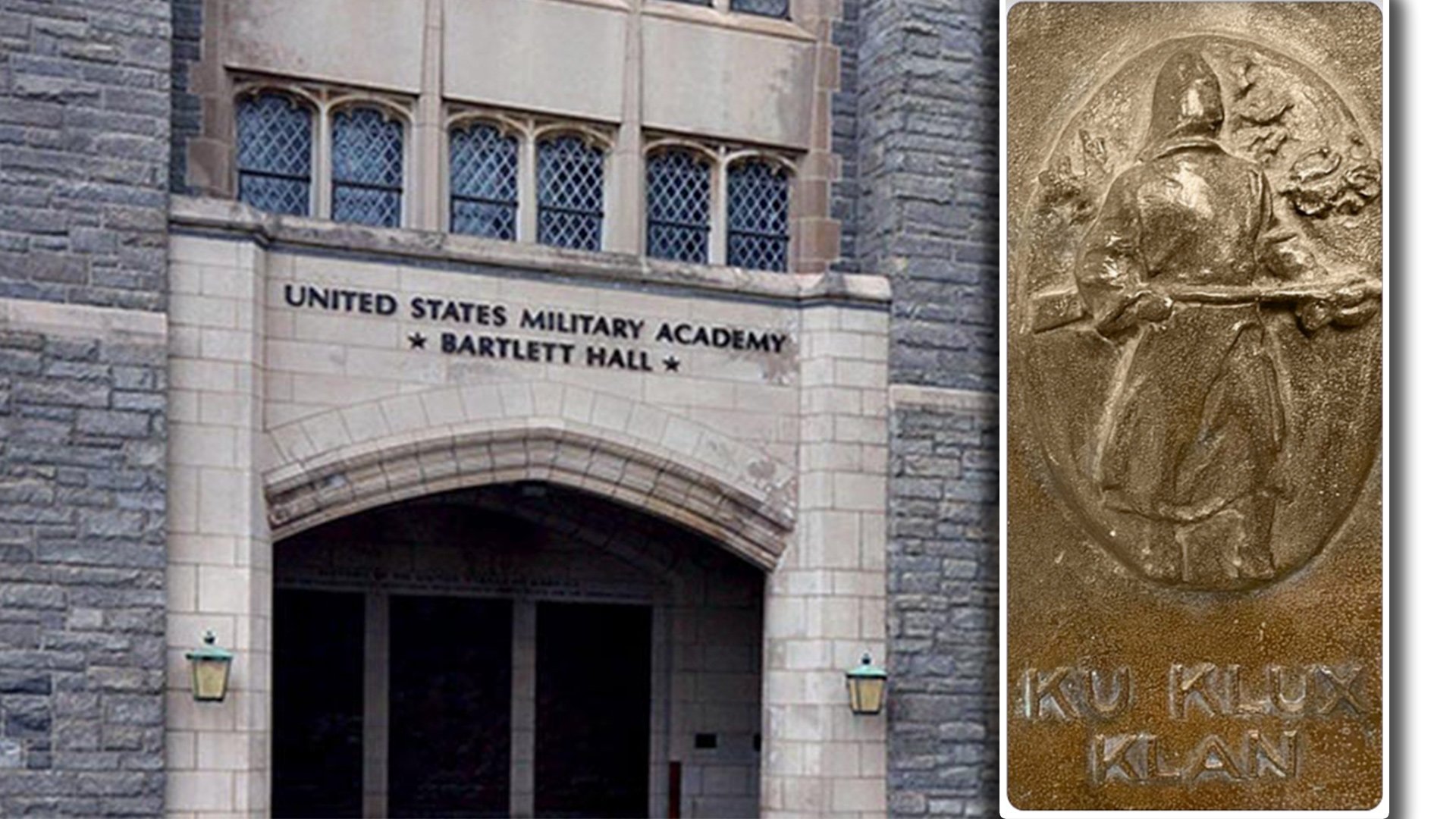
Bartlett Hall is an academic building with classrooms for Chemistry, Physics and Nuclear Engineering. A Ku Klux Klan plaque is said to be in a triptych, or triple panel art display in its entrance. US Military Academy, Naming Commission photos.
The Naming Commission report, released Monday, Aug. 29, studied Confederate names and iconography on the campuses of the US Military Academy, or West Point, and the US Naval Academy. The same commission recommended in May that nine US Army bases be renamed to remove the names of Confederate generals.
However, the report notes that the klan plaque, which it calls a "marker," does not fall under the jurisdiction of the commission, as it neither addresses a specific West Point graduate nor the Confederate military.
Instead, the report focused on better-known memorials at West Point to Gen. Robert E. Lee, who was once the superintendent of the school before joining and leading the Confederate army.
Lee's legacy at the school has long been publicly debated. But the commission made a special note of the klan plaque, which is part of a triptych — a triple-panel art display — at the entrance of Bartlett Hall, which houses science classrooms at the school.
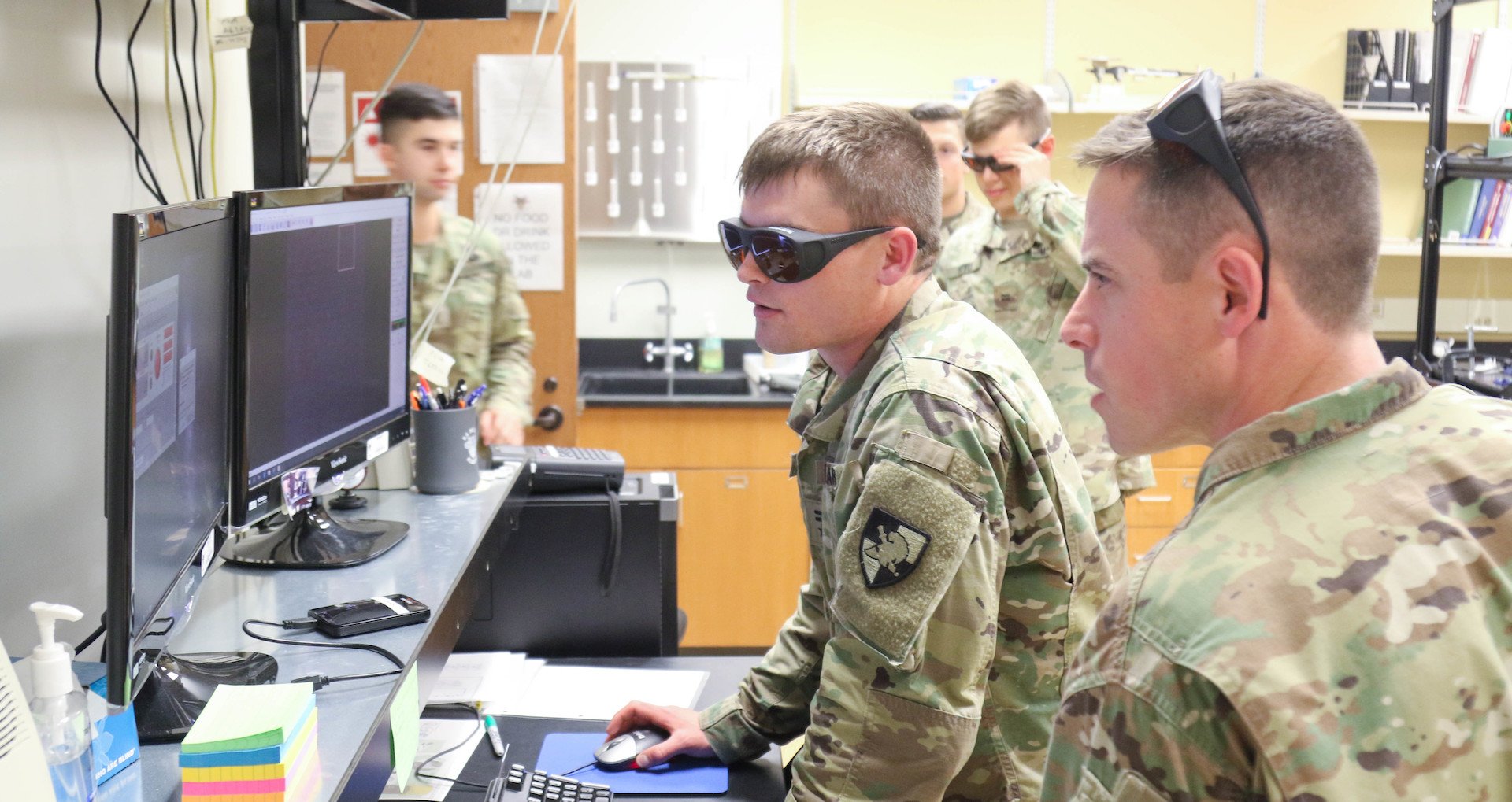
Class of 2021 Cadet Jacob Bohnemann and Capt. Joseph Fasone aim the 1 kilowatt laser in the high energy laser lab in Bartlett Hall. Army photo by Brandon O'Connor.
"The marker falls outside the remit of the Commission," the report notes. "However, there are clearly ties in the KKK to the Confederacy. The Commission encourages the Secretary of Defense to address DoD assets that highlight the KKK."
A West Point official said the school was reviewing the report but did not specifically address the plaque or other memorabilia in the report.
"We are reviewing the recommendations and will collaborate with the Department of the Army to implement changes, once approved," the school said in an emailed statement. "As a values-based institution, we are fully committed to creating a climate where everyone is treated with dignity and respect.”
A West Point faculty member confirmed to Coffee or Die that the marker is still in Bartlett. But the display seems to be unknown to many West Point grads and also appears to be absent from the internet.
Coffee or Die Magazine contacted seven West Point graduates who attended the school in four different decades about the marker. Though far from an authoritative sample, all said they had never seen or heard of the plaque, not even as an unconfirmed rumor among students. All agreed that, if an overt klan memorial were known to students, word of its presence would likely have spread.
The Naming Commission does not detail the size or context of the display.
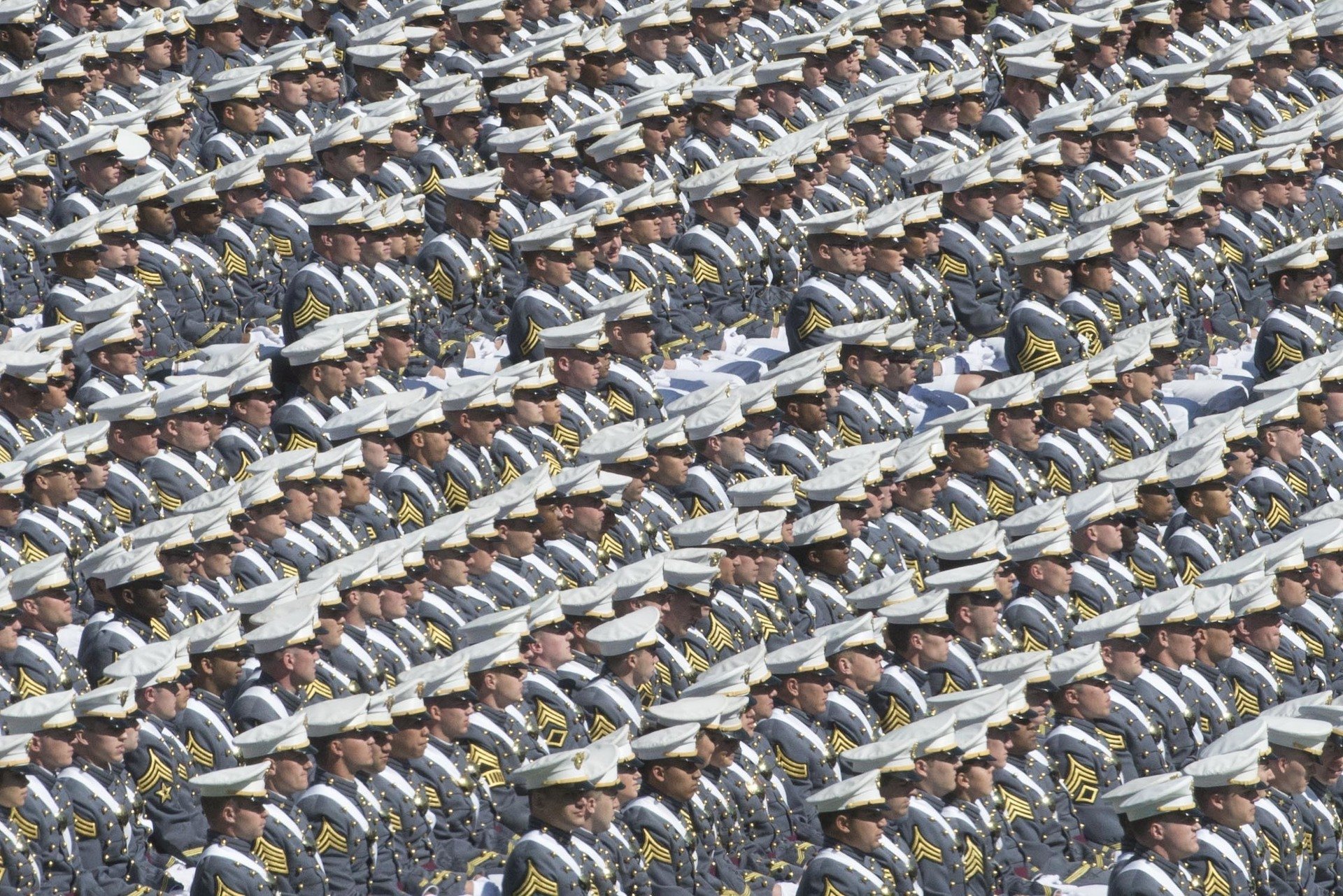
The U.S. Military Academy Class at West Point graduating class of 2015 during their commencement at West Point, N.Y., May 23, 2015. Photo by D. Myles Cullen.
However, the faculty member, who asked not to be named, said they had been aware of it since it was pointed out during an initial tour of the campus by a tour guide.
"It’s definitely there," the faculty member said. "The way it was told to me on my intro to West Point tour was that it was that the scenes on Bartlett were significant and not necessarily good moments in American history. But given that most of the Confederate stuff was added during Jim Crow and civil rights movement, that could be b.s."
As the commission notes in its report, Civil War-related memorabilia was specifically banned from the campus until the 1930s, when Southern politicians championed Lee and others as part of the so-called "Lost Cause" campaign, an effort to rehabilitate Confederate history.
However, another West Point grad said that studying Lee and other Confederate generals remains a key part of the West Point education.
"To discount the strategies and techniques of generals like Lee and Stonewall Jackson means to discount many tactics and techniques for fighting and defeating larger armies with fewer resources but knowing 'home' terrain," the West Point grad told Coffee or Die. "We still implement many of these lessons into modern strategy."
No Trace Online
As of midday Monday, the plaque does not appear to have been noted in any document searchable by Google — news article, archive, or social posts — or in any photograph indexed through the site.
Though the plaque is a depiction of white supremacist iconography — the klansman is holding an 1800s-style musket as if he were a marching soldier — there is no indication online that the marker has ever been publicly recorded or discussed.
A Google image search for the plaque, using both the image and keywords, returned no hits on the afternoon of August 29, soon after the Commission report was published. Coffee or Die could find no news articles, catalogs, or other archived documents online mentioning the plaque in any context within the first several pages of Google results using a variety of keywords, such as "Bartlett Hall," "West Point," "plaque," and "Ku Klux Klan."
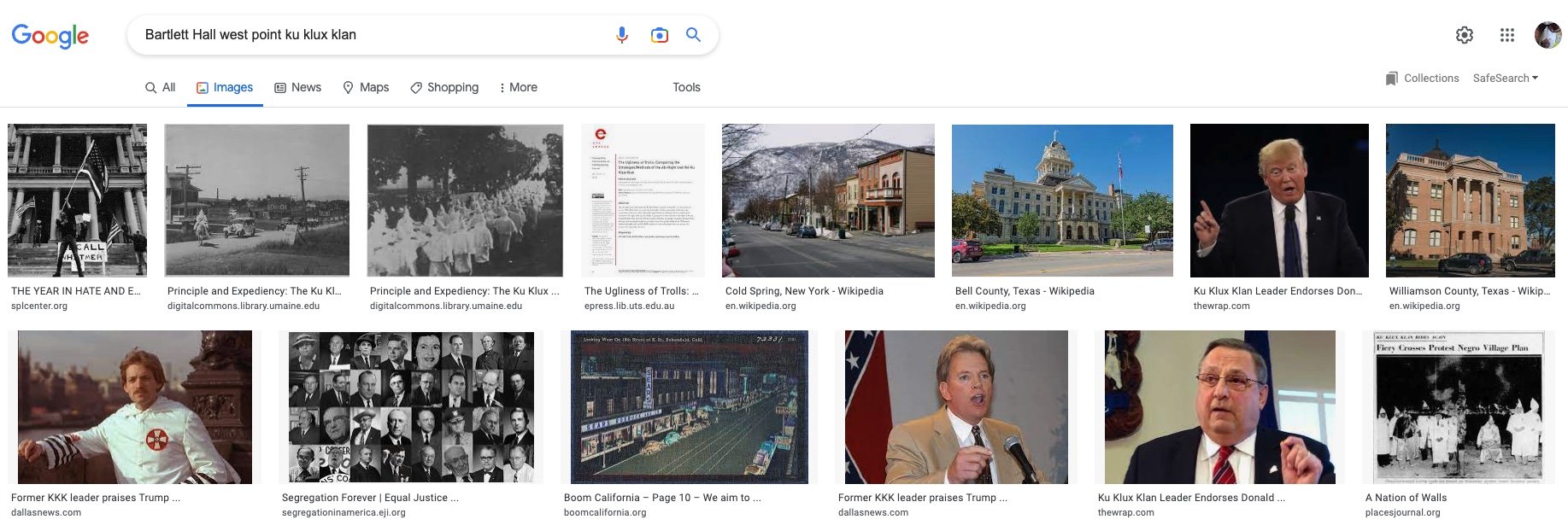
The full results on Google Image Search for "Bartlett Hall west point ku klux klan" as of midday August, 29, 2022. Screenshot of Google.
The remainder of the report released Monday sticks closer to more widely known figures.
At West Point, the commission found seven locations on campus and four items of memorabilia that, in the commission's view, celebrated West Point graduates serving in the Confederate Army.
The locations that the commission recommended be renamed were:
- Beauregard Place, named for Gen. P. G. T. Beauregard.
- Lee Barracks, Lee Housing Area, Lee Area Child Development Center, Lee Road, and Lee Gate, all named for Gen. Robert E. Lee.
- Hardee Place, named for Gen. William J. Hardee.
The commission also recommended the removal or modification of:
- A portrait of Lee in Confederate uniform displayed in Jefferson Hall.
- Engraved images "that commemorate individuals who voluntarily served in the Confederacy" that are in Reconciliation Plaza.
- Elements of the Bartlett Hall triptych that "commemorate people who voluntarily served in the Confederacy," including Lee, Maj. Gens. J. E. B. Stuart and Fitzhugh Lee, and Commander John M. Brooke of the Confederate States Navy.
- A Lee quote engraved in the Honor Plaza. Though ascribed to then-Maj. Lee on the monument — the rank he held as superintendent of West Point — the quote, said the Commission, is generally ascribed to his time in the Confederacy.
Naval Academy
The commission recommended only three changes at the US Naval Academy in Annapolis, two to buildings and one to a road.
Though the commission noted that roughly one-quarter of midshipmen at the school during the Civil War joined the Confederacy, the only Confederate officers that the Commission found memorialized on campus were Matthew F. Maury and Franklin Buchanan.
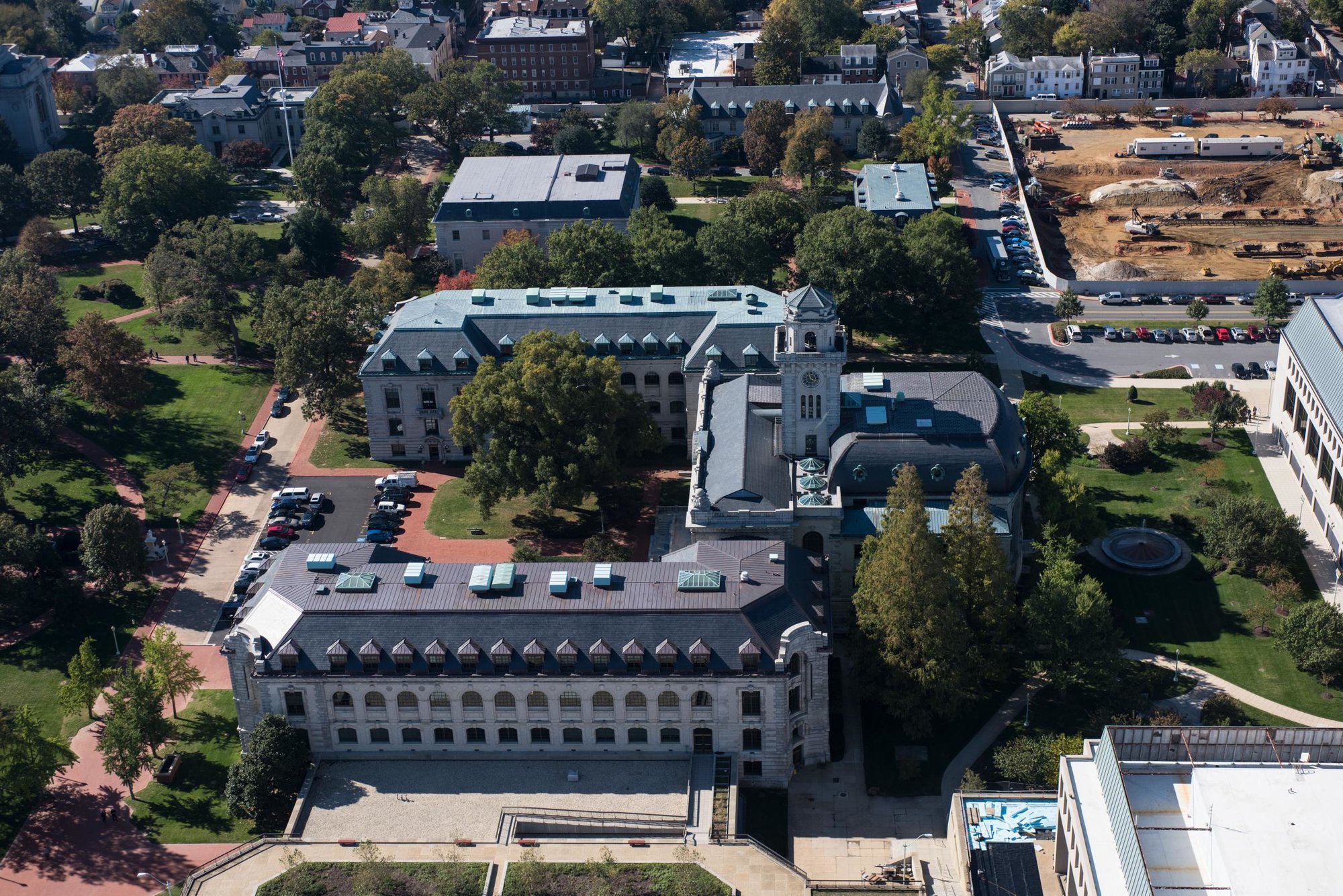
Maury Hall on the US Naval Academy. Photo courtesy USNA.
Maury, the Commission said, was a Navy oceanographer who held an expansive vision of a hemisphere-wide economy based on slavery, including the Caribbean and South America. He lobbied European governments to support the Confederacy during the Civil War.
Buchanan had been a US Navy officer for 45 years when the Civil War began. He joined the Confederacy, quickly becoming an admiral and the commanding officer of the CSS Virginia, which was "under his command in several naval battles." During the war, the commission found, Buchanan "killed hundreds of U.S. Navy sailors."
The commission recommended renaming:
- Buchanan House (the Academy superintendent's quarters) and the adjacent Buchanan Road.
- Maury Hall, an engineering building.
Editor’s note: This story has been updated to include a quote that was inadvertently removed from an earlier version from a West Point alum on the role Lee and other generals play in the school's academic curriculum.
This story has also been updated with a statement from West Point's Public Affairs office that was emailed to Coffee or Die Magazine after the story was first published.
Read Next: Dear Jack: Why Do You Do It?

Matt White is a former senior editor for Coffee or Die Magazine. He was a pararescueman in the Air Force and the Alaska Air National Guard for eight years and has more than a decade of experience in daily and magazine journalism.
BRCC and Bad Moon Print Press team up for an exclusive, limited-edition T-shirt design!
BRCC partners with Team Room Design for an exclusive T-shirt release!
Thirty Seconds Out has partnered with BRCC for an exclusive shirt design invoking the God of Winter.
Lucas O'Hara of Grizzly Forge has teamed up with BRCC for a badass, exclusive Shirt Club T-shirt design featuring his most popular knife and tiomahawk.
Coffee or Die sits down with one of the graphic designers behind Black Rifle Coffee's signature look and vibe.
Biden will award the Medal of Honor to a Vietnam War Army helicopter pilot who risked his life to save a reconnaissance team from almost certain death.
Ever wonder how much Jack Mandaville would f*ck sh*t up if he went back in time? The American Revolution didn't even see him coming.
A nearly 200-year-old West Point time capsule that at first appeared to yield little more than dust contains hidden treasure, the US Military Academy said.












